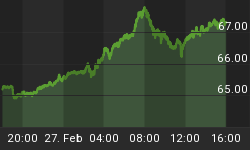Municipal bonds have long been viewed as a staple asset class for conservative, income-seeking investors. "Munis," as they are known, are a large, liquid market of credit-rated securities that provide tax-exempt (from Federal taxes) income to millions of American investors. Towns, school districts, and other public sector authorities across the country have issued an estimated $3.7 trillion dollars worth of these bonds.
But so far this year three municipalities in California (San Bernadino, Stockton, and Mammoth Lakes) have declared bankruptcy and are now asking their bond investors to take reductions in the principal and interest payments they are owed. Just last week, that club appears set to welcome another member as Atwater, a central California city with a population just under 30,000, declared a fiscal emergency and put itself on a path toward bankruptcy. After the Atwater announcement, NBC news reported that one public finance expert had described municipal bankruptcies in California as "spreading like a disease."
According to recent reports from Moody's and Fitch's, these recent bankruptcies may only be the beginning. They warn that after decades of steady performance, municipal bonds (and by extension municipal bond funds) may see higher default rates and poorer performance in the years to come.
If the economy continues to languish in the years ahead municipal bond holders may find themselves in a tight spot. Their financial claims may increasingly compete with the pension claims of retired municipal workers. It's easy to envision a scenario whereby "rich" bond investors are asked to take a haircut so that retired policemen, firefighters, teachers, and other blue-collar employees can be made whole on their pension expectations. The brewing class warfare currently playing out in the US presidential campaign may accelerate if the US economic pie continues to shrink.
Given the uncertainty over domestic bond issuers, investors seeking income may want to consider assets in countries and sectors that offer stronger fundamentals. See the Euro Pacific Global Investor Newsletter. Our October edition was released just last week.
The current crunch in municipal finances is particularly troubling given the surge in muni bond investing over the past several years. In the wake of the stock market crash of 2008, and the subsequent loss of faith in American economic resiliency, many investors appear to have sought the stability of munis. In addition, as short-term interest rates are expected to remain near 0% for years to come, and tax rates are expected to rise for wealthy investors, demand for these tax-free securities would be expected to remain high. As a result, any hiccups in the muni market in the years ahead could make a significant impact in the investment world.
In truth, municipalities all around the country - not just those in California - are already experiencing stresses like never before. Professor Joshua Rauh of Northwestern University recently estimated that unfunded pension liabilities are as high as $4.4 trillion - that's nearly $30,000 for every household in America (bear in mind, these unfunded liabilities are beyond the commonly-discussed federal obligations of Social Security and Medicare).
Concerns about municipal bonds are not limited to academia. Nearly two years ago, Meredith Whitney - who previously gained fame by making a bearish call on Citigroup stock - began warning of a "tidal wave" of defaults amongst municipalities. She predicted that there would be between 50 and 100 major municipal bond defaults (at least 42 actually occurred in 2011 alone). In a sign of just how high the stakes are, Whitney was later called to testify before Congress in regards to her prediction.
Bond insurers - who pay investors in the event that a municipality goes bankrupt - have also come under pressure. Shares of insurer MBIA traded over $70 in 2006but now languish below $12 (with a PE ratio of just 5). Shares of its primary competitor, Assured Guaranty, have fared little better, trading at just half its peak value from 2007(also with a PE of 5). Clearly, equity investors are unconvinced that these companies have bright prospects.
Last month legendary investor Warren Buffet terminated certain contracts that his firm (Berkshire Hathaway) made in the municipal debt market. As reported by the Wall Street Journal, under the contracts, Berkshire would have been required to make payments in the event of bond defaults. By cancelling these contracts, Berkshire is no longer on the hook.
Whether it's the university professor, the renegade analyst, or one of the most respected investors in the world, it's clear that there are significant concerns about the health of the nation's muni bond market.
Of course, there is another alternative to default (though one that would be equally injurious to investors' portfolios). It's not hard to imagine that if municipal finances got much worse, municipal bonds could be bought by the Federal Reserve under its new perpetual QE program. Professor Rauh has stated that the municipalities could go to the US Treasury for a bailout. From there, it's just a hop, skip, and a jump to the Federal Reserve announcing that it will add muni bonds to its list of assets that it intends to buy (in addition to Treasury and mortgage-backed securities). Muni investors would then be made whole, but at the cost of more inflation, which would then surreptitiously reduce the real value of their portfolios.
In light of the brewing circumstances of municipal finances, investors would be well-advised to review their holdings of municipal bonds and determine whether their portfolios face heightened risk. Wise investors seeking reliable income should look to diversify their asset allocations.
Opinions expressed are those of the writer, and may or may not reflect those held by Euro Pacific Capital, or its CEO, Peter Schiff.
Subscribe to Euro Pacific's Weekly Digest: Receive all commentaries by Peter Schiff, John Browne, and other Euro Pacific commentators delivered to your inbox every Monday!
Order a copy of Peter Schiff's new book, The Real Crash: America's Coming Bankruptcy - How to Save Yourself and Your Country, and save yourself 35% off!















